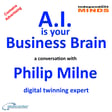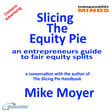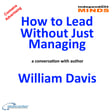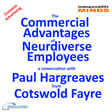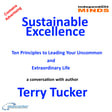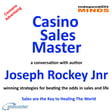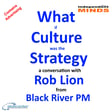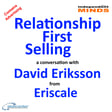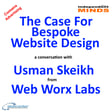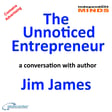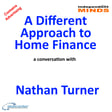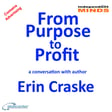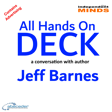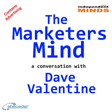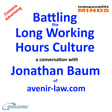
10,000 Ethical Millionaires – a conversation with Gal Ezra
Gal Ezra is the founder of Guaranteed Prosperity.
It was an organisation which was inspired by the advice Gal received from his father when he found himself stranded in South Africa, unable to return home because of a visa mix up.
Gal needed money, but his father would not send it. Instead, Gal business received advice so that as his father said he could make his own money.
After building several profitable businesses Gal is now sharing his father’s advice with other business professionals. Gal plans that by sharing this advice he will be able to create 10,000 ethical millionaires
In this episode of the Abeceder podcast The Independent Minds, Gal Ezra and host Michael Millward discuss what it means to run an ethical business.
They discuss what stops people from being successful and Gal proposes some radical ideas that will, initially have you screaming at your smart speaker!
Some of Gal’s ideas about what stops organisations and individuals fulfilling their potential will have you screaming at your smart speaker.
The Independent Minds is made on Zencastr, because as the all-in-one podcasting platform, Zencastr really does make creating content so easy.
If you would like to try podcasting using Zencastr visit zencastr.com/pricing and use our offer code ABECEDER.
Travel
Gal Ezra splits his time between Florida USA and Cape Town, South. With discounted membership of the Ultimate Travel Club, you can travel anywhere in the world at trade prices on flights, hotels, trains, and so many more travel related purchases.
Fit For Work Look after your health and you will be fit for work.
We recommend The Annual Health Test from York Test; a 39-health marker Annual Health Test conducted by an experienced phlebotomist Hospital standard tests are carried out in a UKAS-accredited and CQC-compliant laboratory.
A secure Personal Wellness Hub provides easy-to-understand results and lifestyle guidance
Visit York Test and use this discount code MIND25.
Three the network Visit Three for information about business and personal telecom solutions from Three, and the special offers available when you quote my referral code WPFNUQHU.
Being a Guest
We recommend that potential guests take one of the podcasting guest training programmes available from Work Place Learning Centre.
We use Matchmaker.fm to connect with potential guests If you are a podcaster looking for interesting guests or if you have something interesting to say Matchmaker.fm is where matches of great hosts and great guests are made. Use our offer code MILW10 for a discount on membership.
We appreciate every like, download, and subscriber.
Thank you for listening.
